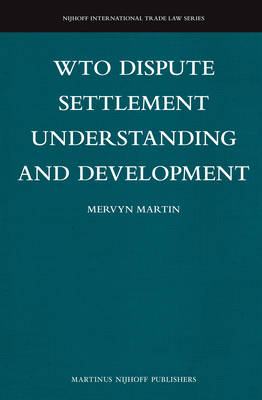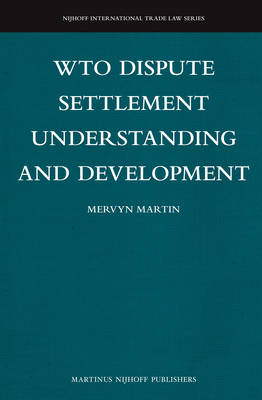
- Afhalen na 1 uur in een winkel met voorraad
- Gratis thuislevering in België vanaf € 30
- Ruim aanbod met 7 miljoen producten
- Afhalen na 1 uur in een winkel met voorraad
- Gratis thuislevering in België vanaf € 30
- Ruim aanbod met 7 miljoen producten
Zoeken
Omschrijving
This book examines the effectiveness of the WTO DSU in pursuing the developmental objectives of the WTO. Unregulated globalisation enabled developed countries to benefit more from the process.
International trade theories emphasise on welfare enhancement and influenced the development of international trade cooperation. However, its development during the colonial era emphasised on protection of colonial interests.
The WTO was meant to emphasise on a strengthened dispute settlement mechanism to support its diverse membership. It has failed to achieve this due to weak mechanisms for promoting developing country participation.
The DSU review based on the draft negotiating proposal from the DSB reflects the on-going weakness of the DSU in pursuing developed country interests whilst ignoring major problems faced by developing countries in using the DSU. Five major issues in relation to the DSU are identified in this investigation. However, the Chairman's text in no way addresses any of these.
International trade theories emphasise on welfare enhancement and influenced the development of international trade cooperation. However, its development during the colonial era emphasised on protection of colonial interests.
The WTO was meant to emphasise on a strengthened dispute settlement mechanism to support its diverse membership. It has failed to achieve this due to weak mechanisms for promoting developing country participation.
The DSU review based on the draft negotiating proposal from the DSB reflects the on-going weakness of the DSU in pursuing developed country interests whilst ignoring major problems faced by developing countries in using the DSU. Five major issues in relation to the DSU are identified in this investigation. However, the Chairman's text in no way addresses any of these.
Specificaties
Betrokkenen
- Auteur(s):
- Uitgeverij:
Inhoud
- Aantal bladzijden:
- 362
- Taal:
- Engels
- Reeks:
- Reeksnummer:
- nr. 13
Eigenschappen
- Productcode (EAN):
- 9789004227804
- Verschijningsdatum:
- 30/01/2013
- Uitvoering:
- Hardcover
- Formaat:
- Genaaid
- Afmetingen:
- 160 mm x 241 mm
- Gewicht:
- 680 g

Alleen bij Standaard Boekhandel
+ 595 punten op je klantenkaart van Standaard Boekhandel
Beoordelingen
We publiceren alleen reviews die voldoen aan de voorwaarden voor reviews. Bekijk onze voorwaarden voor reviews.








